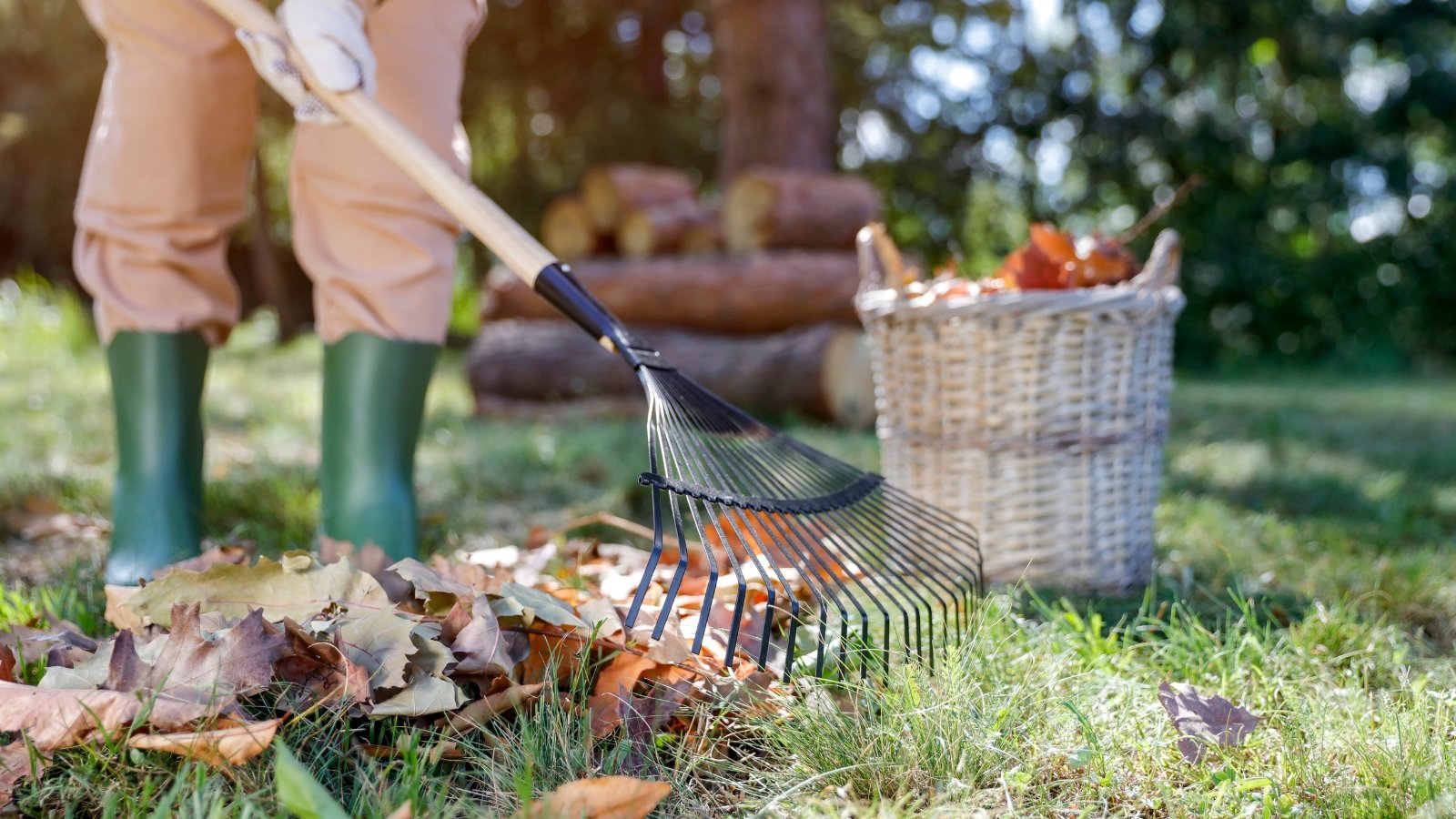
11 Fall Gardening Duties You Should not Ignore
[ad_1]
Because the colourful colours of summer time season season give approach to the crisp chill of autumn, it could be straightforward to miss your yard beds. The tomatoes are achieved, the last word of the leafy herbs have bolted, the mums are out on current—what else may there most likely be? There are literally many fall yard duties you don’t need to ignore or push off.
Whilst you’re fortunate sufficient to have varied leisurely weeks of nice fall native climate prior to a deep freeze hits, you might squeeze in a single totally different batch of veggies. Carrots, turnips, radishes, and greens make good cool-weather crops.
Nonetheless, if getting additional seeds began doesn’t sound doable, there are just a few gardening duties that ought to take extreme precedence. Fall is a wonderful time all through the yard: the native climate is cooler, rain can be falling additional repeatedly, and most vegetation are naturally slowing down and going dormant.
Now that you just simply don’t want to fret about harvesting or watering, you presumably can step as soon as extra and take care of a few of these sometimes forgotten duties. That is the proper varied to assess your soil, lastly eradicate these diseased vegetation that popped up this summer time season season, and full some most important yard machine repairs.
Listed beneath are 11 must-do yard duties to dig into this fall—don’t ignore them! We’re rooting for you!
Feed Your Soil
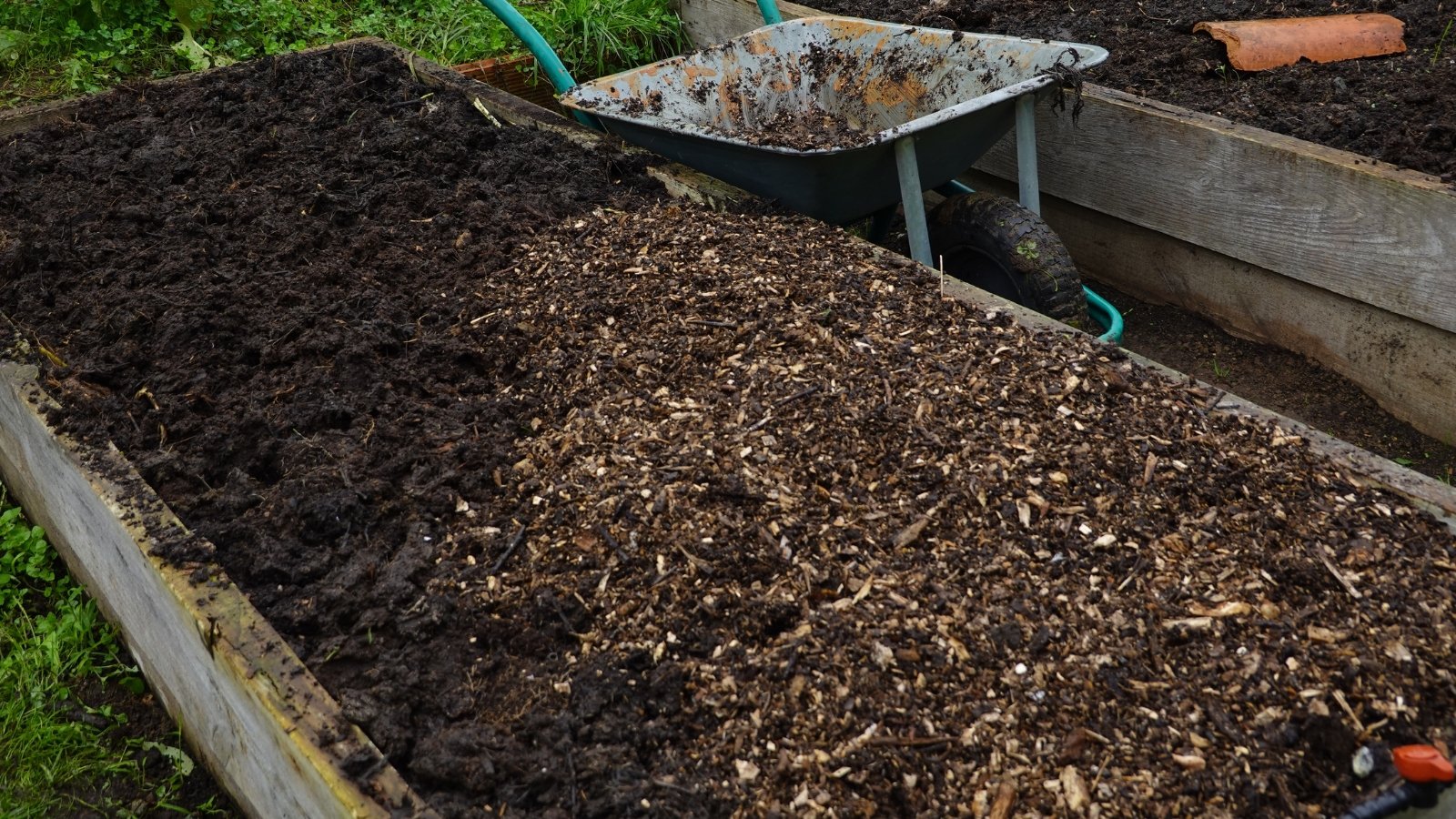

After a full season of supporting lush vegetation, fruits, and beautiful flowers, your yard soil wants significantly pampering. Spending vitality on establishing resilient, nutrient-rich soil will go an necessary distance. There are an extreme quantity of different routes to feed and preserve healthful soil, however do what feels approachable and accessible in your yard!
Add Compost
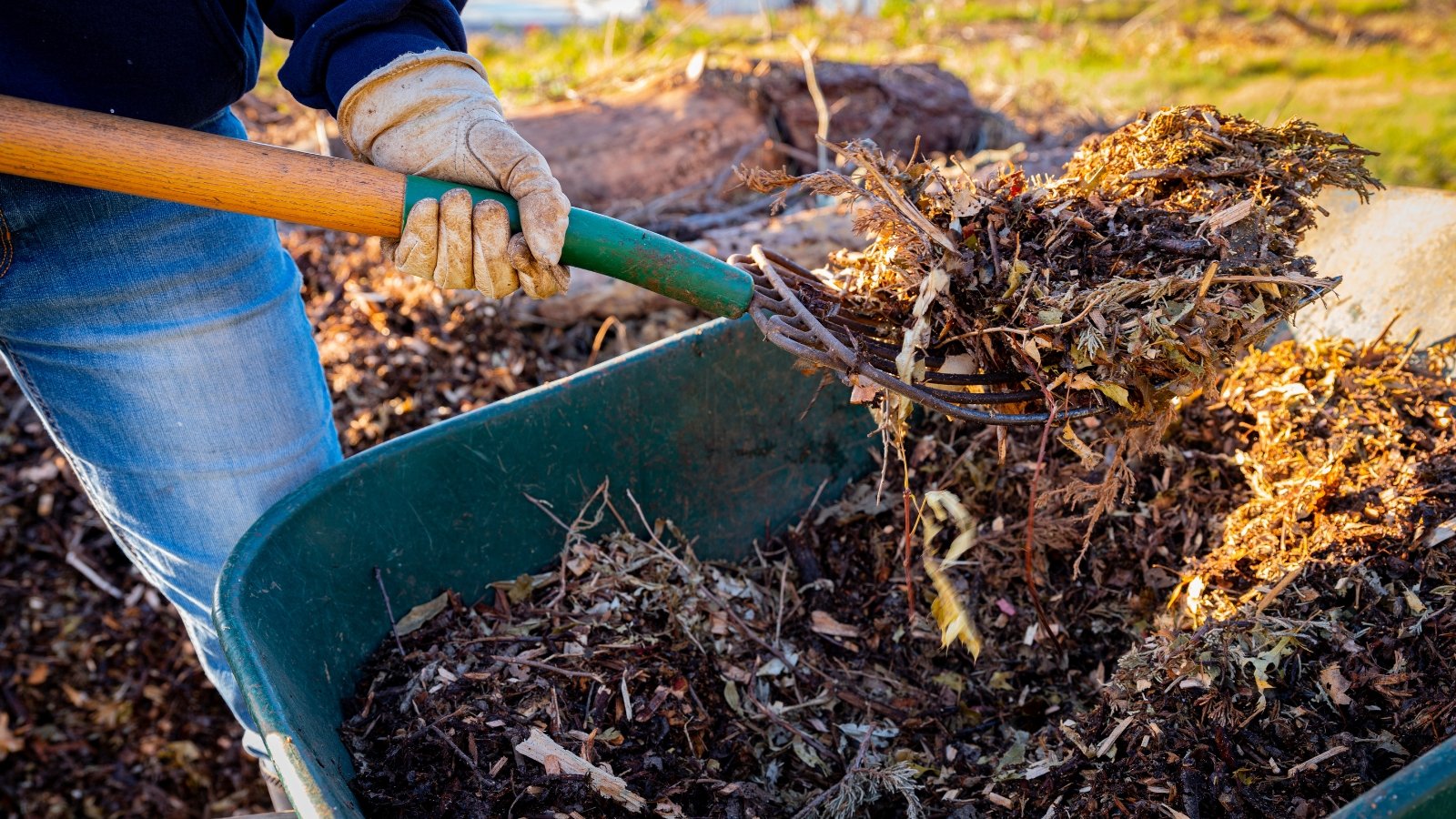

Whether or not or not or not you make your explicit individual compost or buy a bag of it, that is the principle problem you can do in your soil all through the autumn. A healthful dose of compost improves drainage, lightens heavy soil, helps useful microorganisms, and helps preserve soil moisture. Add a 1-2 inch thick layer of achieved compost to your yard mattress.
Plant a Cowl Crop
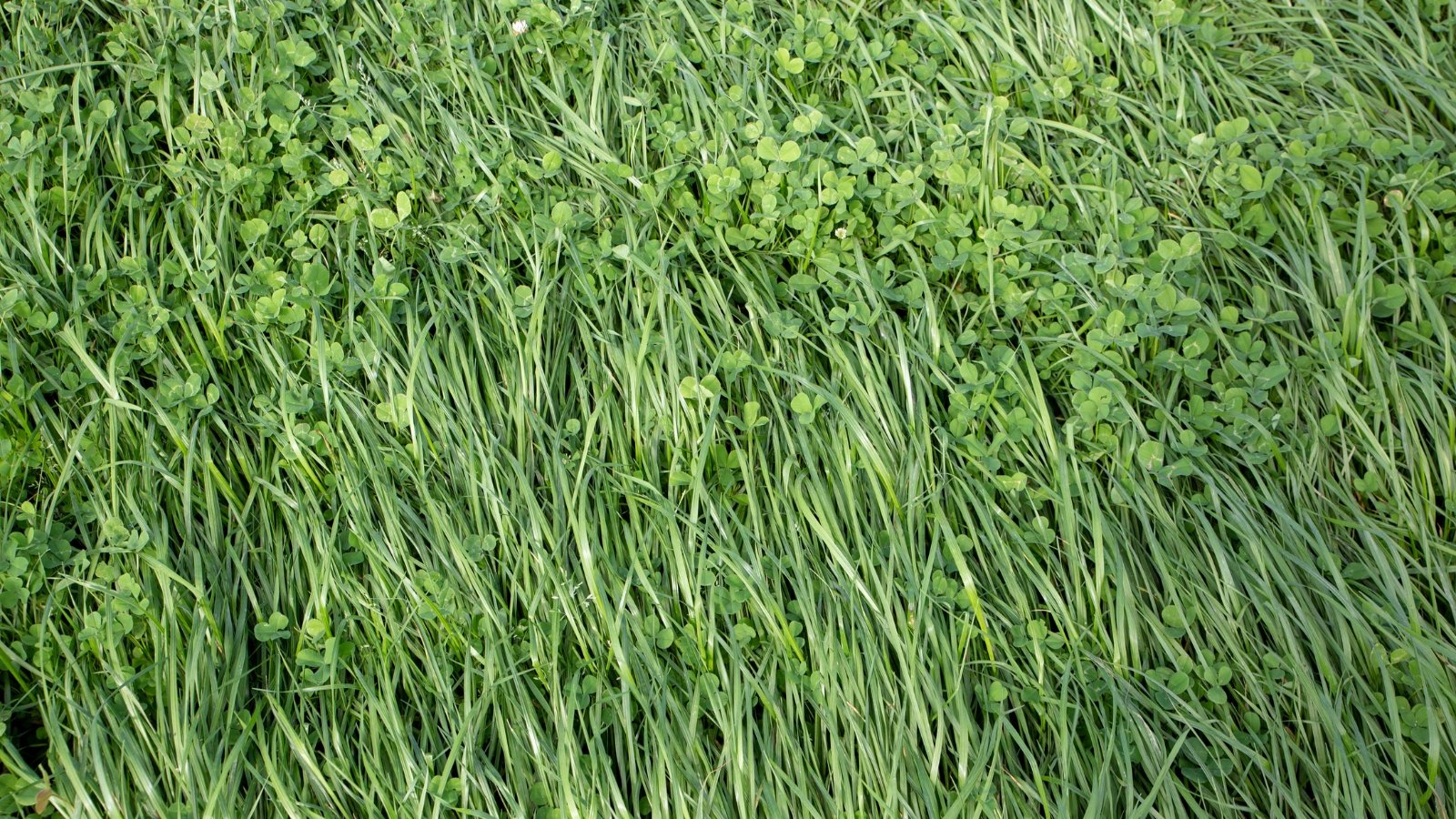

Ponder planting a canopy crop to guard soil from compaction and assist preserve soil fertility. Cowl cropping is the apply of planting and rising secondary vegetation in a mattress or self-discipline when the world isn’t getting used to develop the first crop (normally a vegetable or fruit).
This apply is historically used on larger farms, however can completely be utilized in a house yard too. Fall cowl crops embrace oats, annual ryegrass, winter wheat, bushy vetch, clover, and Austrian winter peas.
Mulch
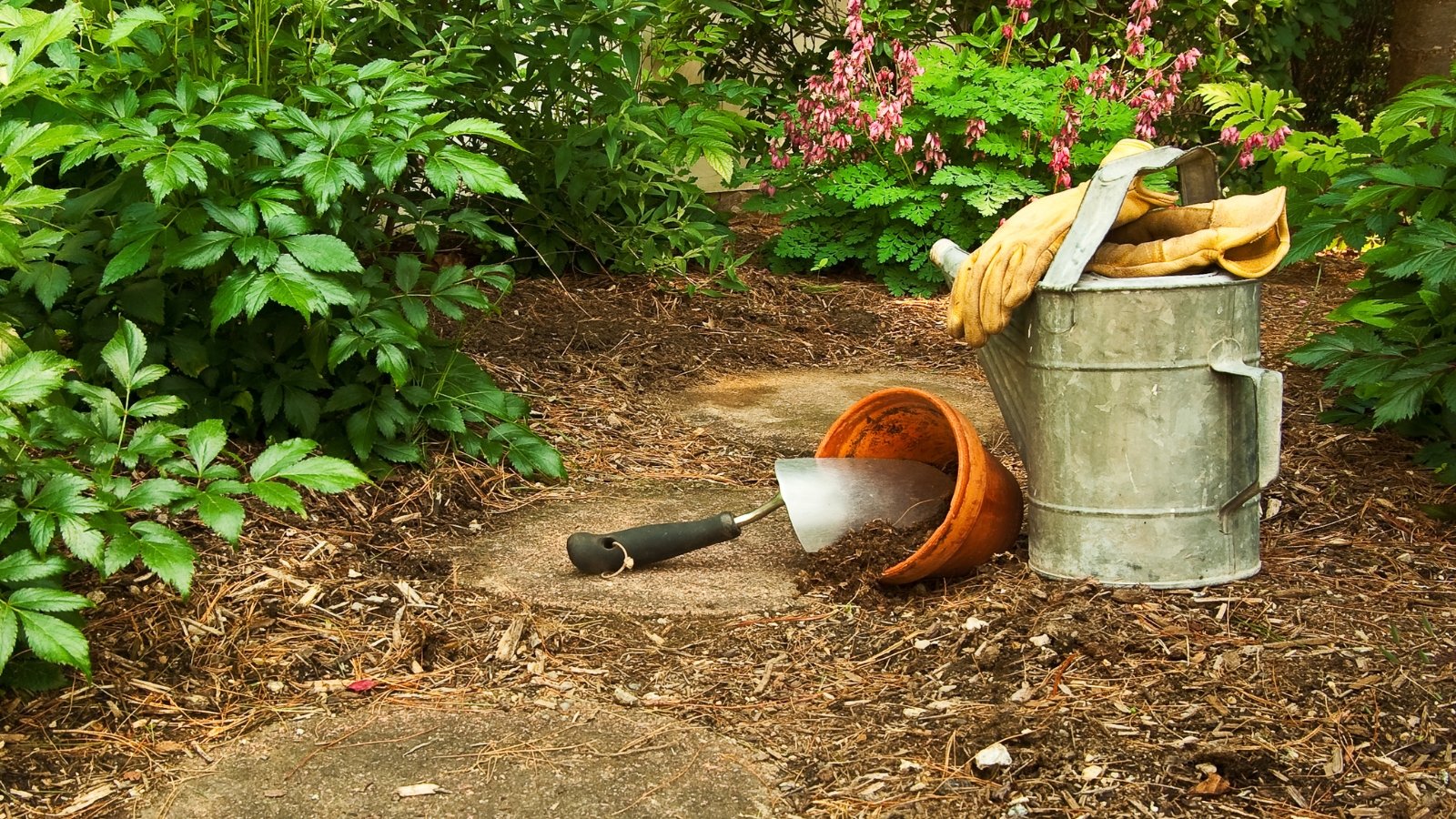

No cowl crop? On the very least, cowl the bottom of your mattress with chopped leaves, straw, or bark mulch. Mulch will shield the nutrient-dense topsoil from eroding away, preserve soil moisture, and preserve sneaky weed seeds from taking root.
Deal With Sicknesses
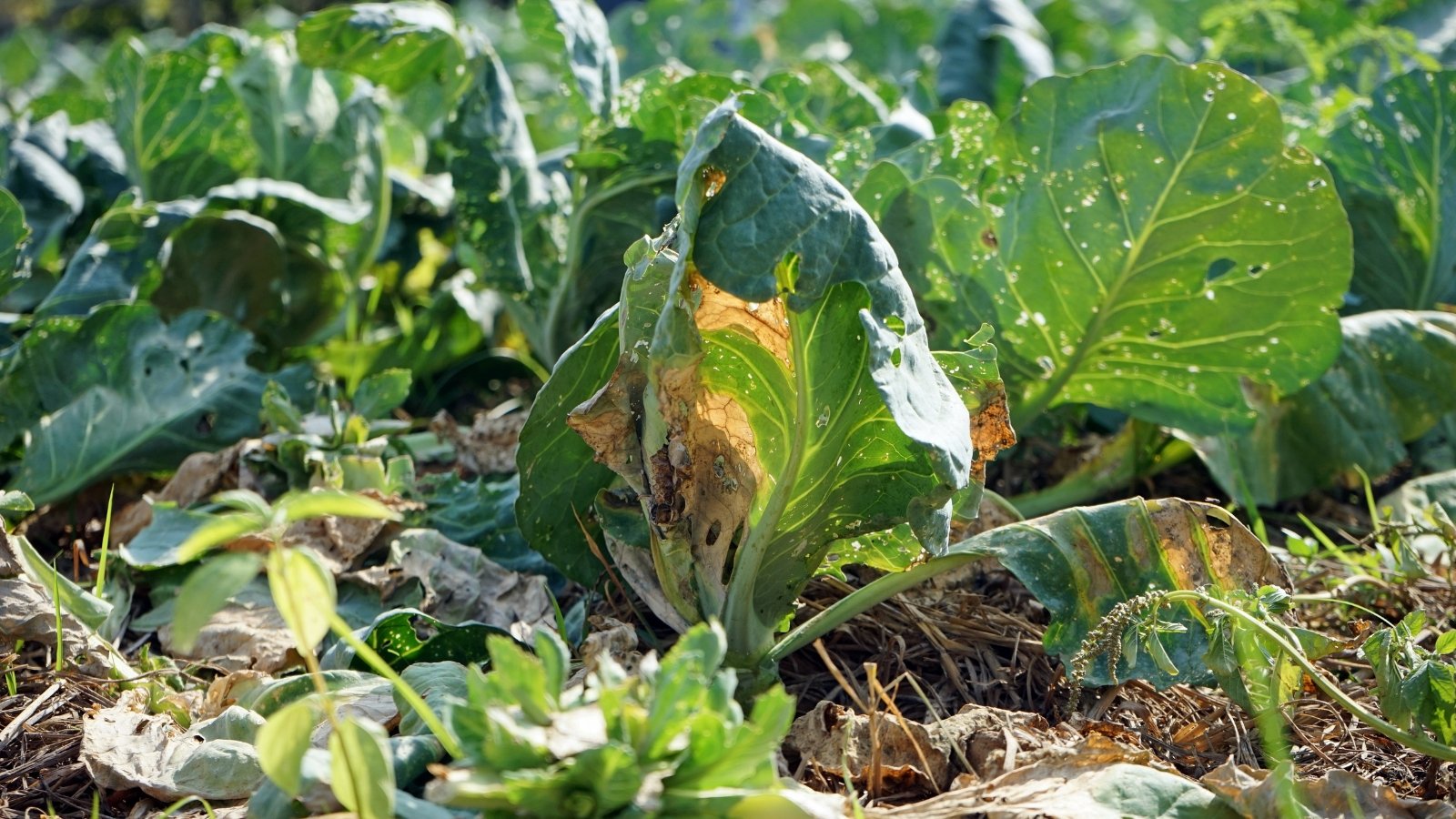

Ahead of you get carried away composting, you’ll need to make an observation of any sicknesses that plagued your yard this season. Dwelling compost setups hardly get scorching sufficient to kill pathogens. In consequence, many viral, bacterial, and fungal sicknesses can overwinter on soil and plant particles thrown all through the compost bin. Toss any contaminated plant provides all through the trash, and don’t threat one totally different outbreak subsequent spring.
Haul In Your Houseplants
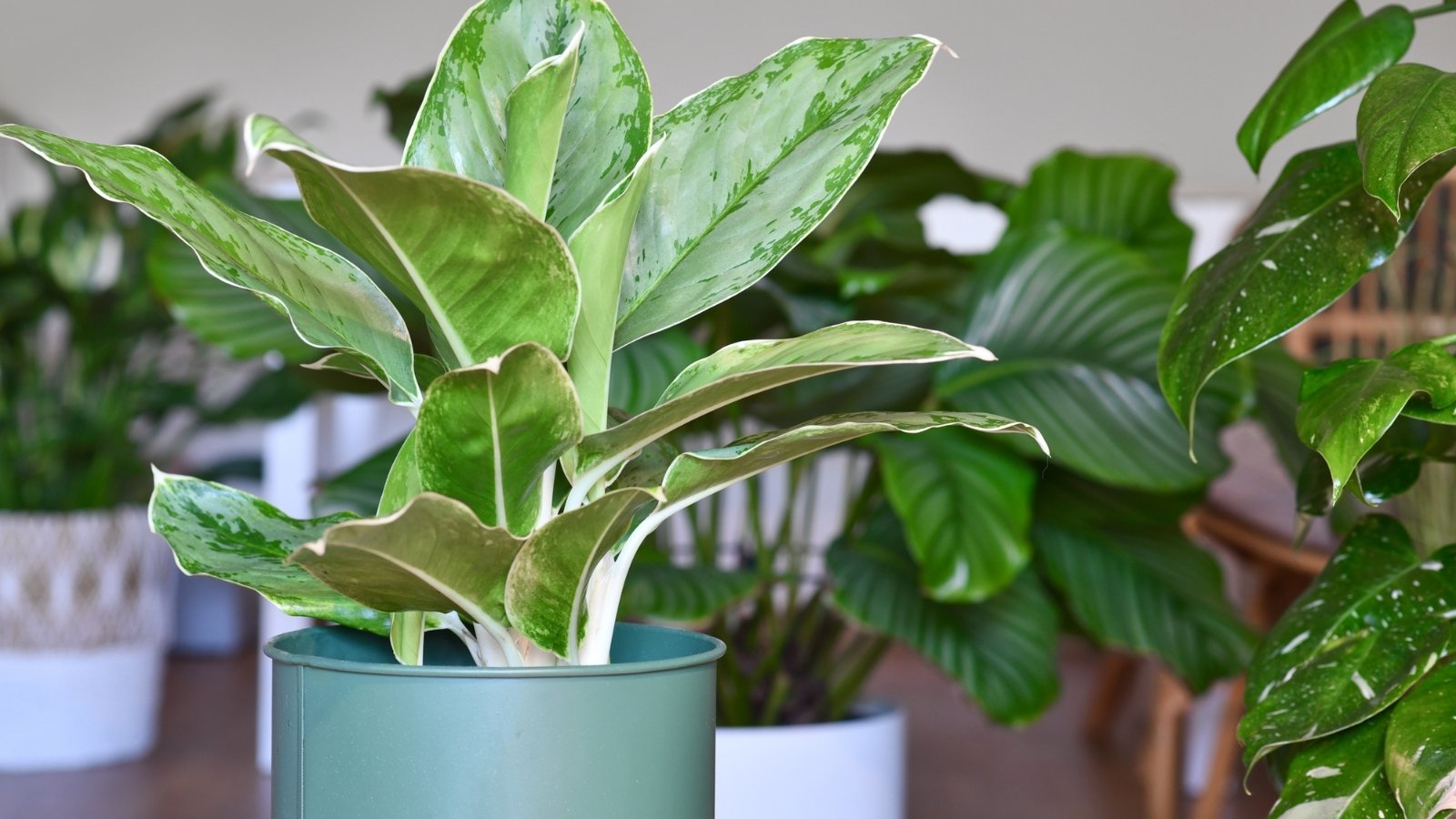

Whilst you moved some houseplants out to a porch or deck for “summer time season season journey”, time to ship them as soon as extra indoors! Plenty of our beloved houseplants have tropical origins, and temperatures beneath 45-50°F (7-10°C) may set off them main harm or lack of life.
To steer clear of inviting aphids and completely totally different bugs into your non-public house, give your houseplants an necessary once-over prior to relocating them indoors. Spray leaves down with a hose to knock mud and pests unfastened. Apply neem oil or insecticidal cleaning cleansing cleaning soap to any vegetation that present indicators of infestation.
Make a Plan For Leaves
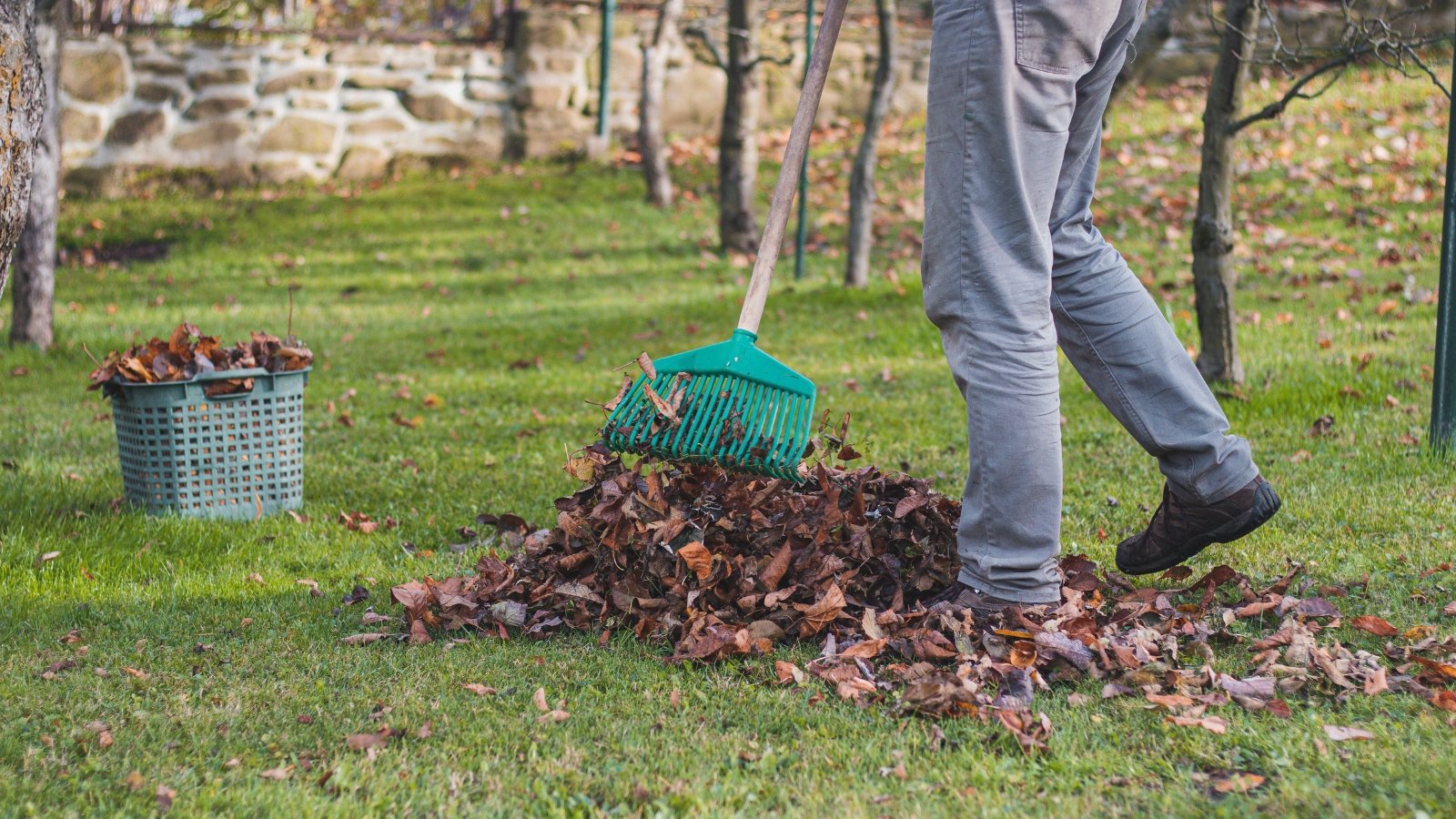

The quaint of gardening thought was to scoop each final fallen leaf and get rid of it. We now know that leaves are sturdy gold inside the case of healthful gardens and resilient ecosystems. Proceed to rake up dense mats of leaves off of walkways, patios, and grass lawns. Nonetheless, don’t throw leaves away. As an alternative:
Add Them to Your Compost
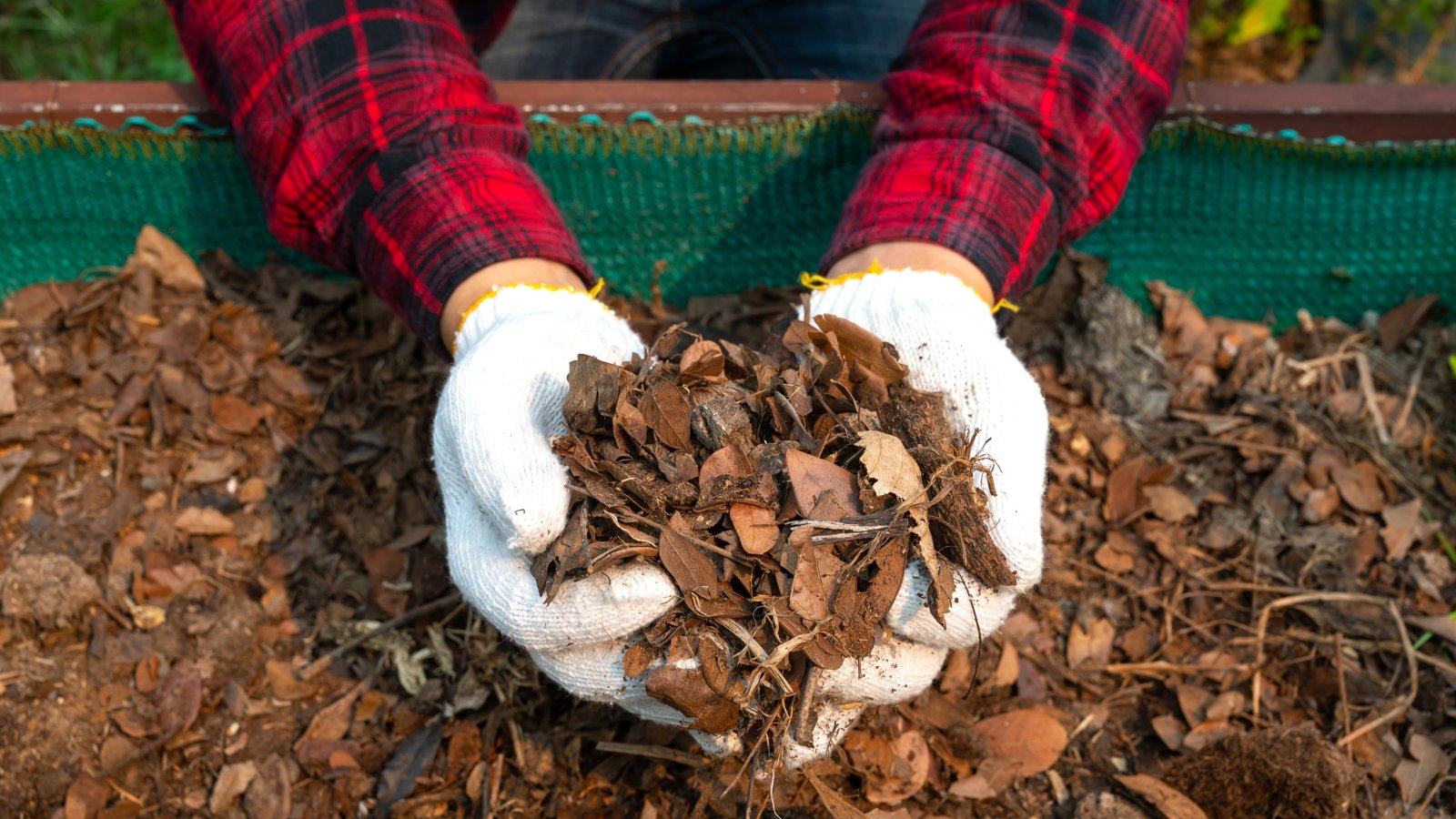

Dried leaves are carbon-rich “brown” components. Add leaves to your compost bin instantly, or save them in a watertight container to make the most of all by the winter. I’m not fussy about throwing the leaves in complete, however merely know that they’ll take longer to interrupt down. Chop or shred leaves to hurry up the decomposition course of.
Mulch Yard Beds With Them
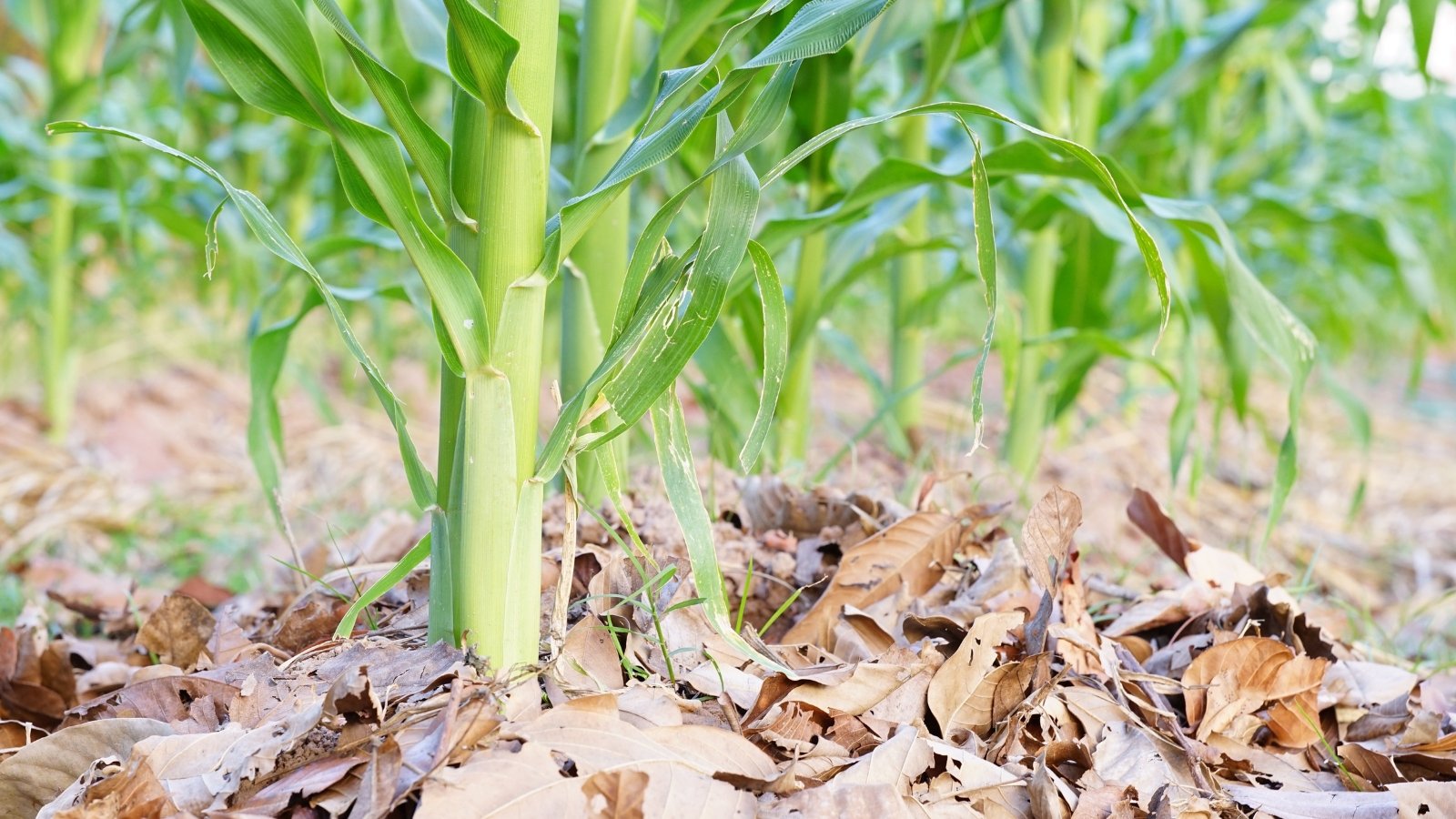

Chopped leaves are a implausible pure mulch, and this fall yard train is certainly one you might remorse to disregard. Tuck an insulating layer of leaves spherical tender perennials which may use some further winter safety. Use chopped leaves to cowl naked soil and empty yard beds. They’ll suppress weeds and preserve your helpful topsoil intact.
Are there any bushes that shouldn’t be used for leaf mulch? Fairly a couple of. Black walnut produces a chemical often called juglone, which prevents many vegetation, together with most of our widespread yard veggies, from rising. Whereas the leaves don’t comprise fairly as fairly a bit juglone on account of the roots and nut hulls, they need to nonetheless be composted for a few months prior to utilizing all through the yard. You’ll furthermore maybe need to skip utilizing poison ivy or poison oak leaves as mulch, which will certainly come as soon as extra to hang-out you later.
Stash Some for Wildlife
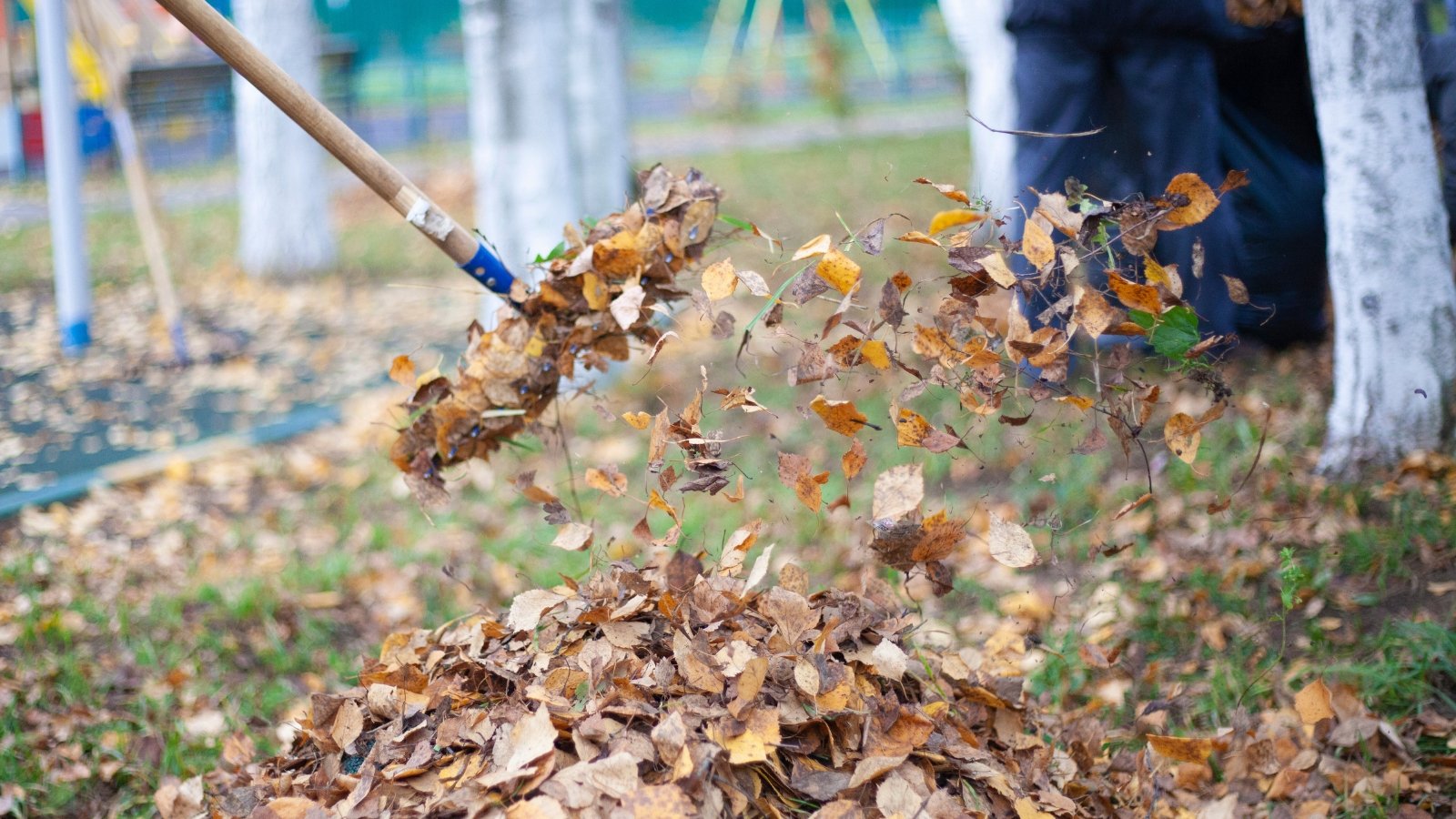

Leaves and brush carry out useful habitat for bugs and completely totally different overwintering wildlife. When you possibly can’t stand the sight of scattered leaves spherical your yard, rake them correct proper right into a unfastened pile in a discreet nook. Bees, moths, and completely totally different pollinators will nest, feed, and take shelter among the many many many leaves.
Take Tender Tubers Out of the Floor
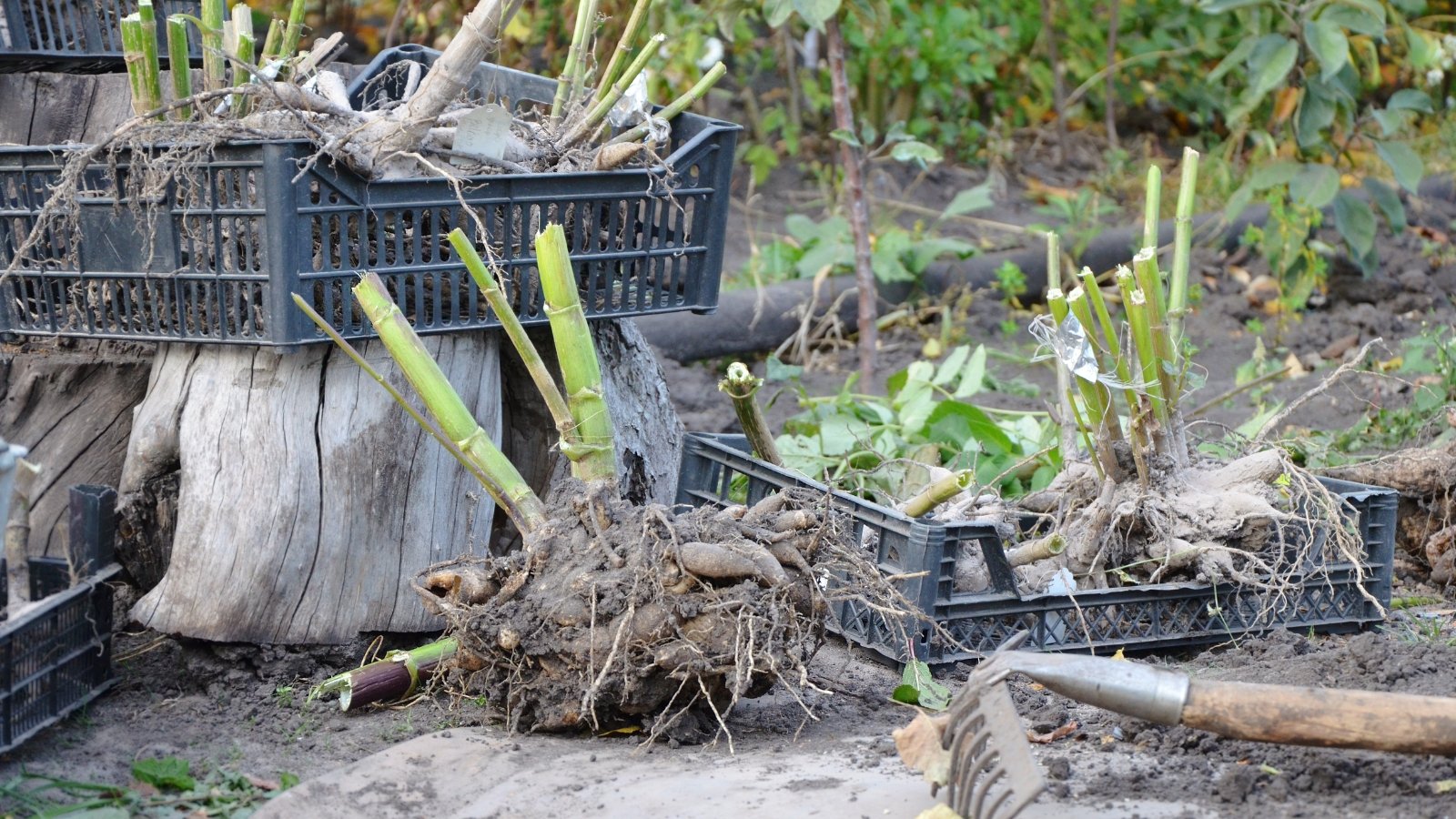

Whilst you ignore your tubers and bulbs in your fall yard train tips, likelihood is excessive you might not have flowers subsequent spring. Tender tubers (bulbs) embrace summer- and early fall- flowering vegetation corresponding to dahlias, canna lilies, caladiums, calla lilies, tuberous begonias, and freesia. Most of those vegetation are native to tropical or semi-tropical environments, and their tubers can not survive a tough freeze.
Gardeners all through the warmest climates—normally USDA zone 9 and hotter—can depart these vegetation all through the flooring all 12 months. Nonetheless, gardeners in cooler zones could want to dig these tender tubers up and retailer them indoors by the winter months. Wait till the primary delicate frost of the autumn; it can provide the plant ample time to mature and retailer up dietary nutritional vitamins for the next 12 months earlier to going dormant.
Get Hardy Bulbs all through the Floor
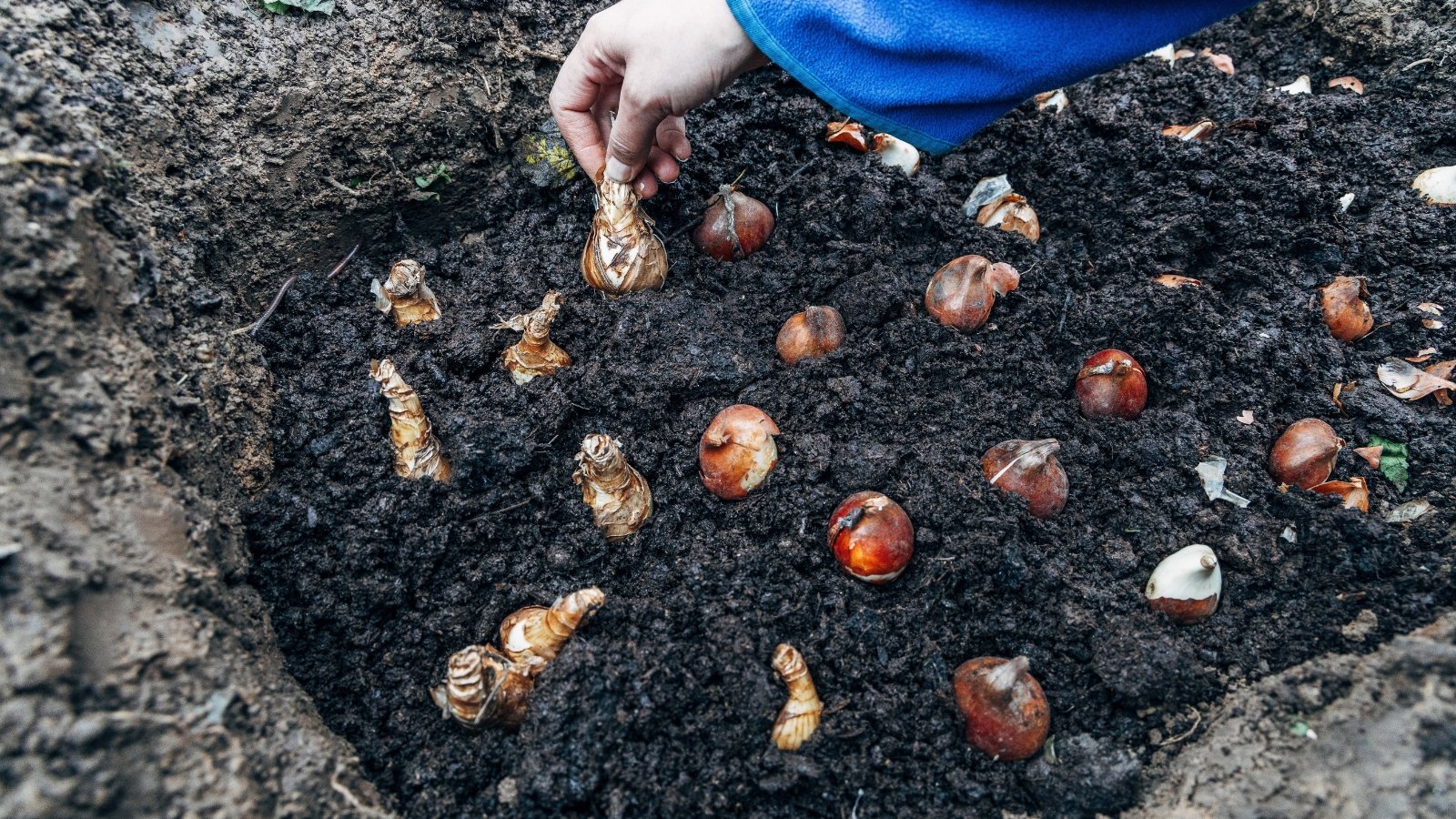

Whilst you merely dug up some dahlias, preserve the shovel helpful – it’s maybe time to plant spring-flowering bulbs. Tons of our favourite spring vegetation (tulips! daffodils! crocuses!) are bulbs that require a chilling interval in an effort to bloom appropriately.
Plant these bulbs all through the autumn to provide them with the chilly temperatures wanted to care for them dormant:
- Daffodil
- Crocus
- Glory-of-the-snow
- Muscari
- Snowdrops
- Tulips
Missed the window to get these spring beauties all through the flooring? Don’t fret. You may attempt to “drive” your bulbs into bloom by chilling them artificially in a fridge for varied weeks. That is often called chilly stratification. The vegetation isn’t going to be as sturdy as these planted all through the autumn, so you will wish to choose the healthiest bulbs for most likely the best potential bloom.
Divide Perennials
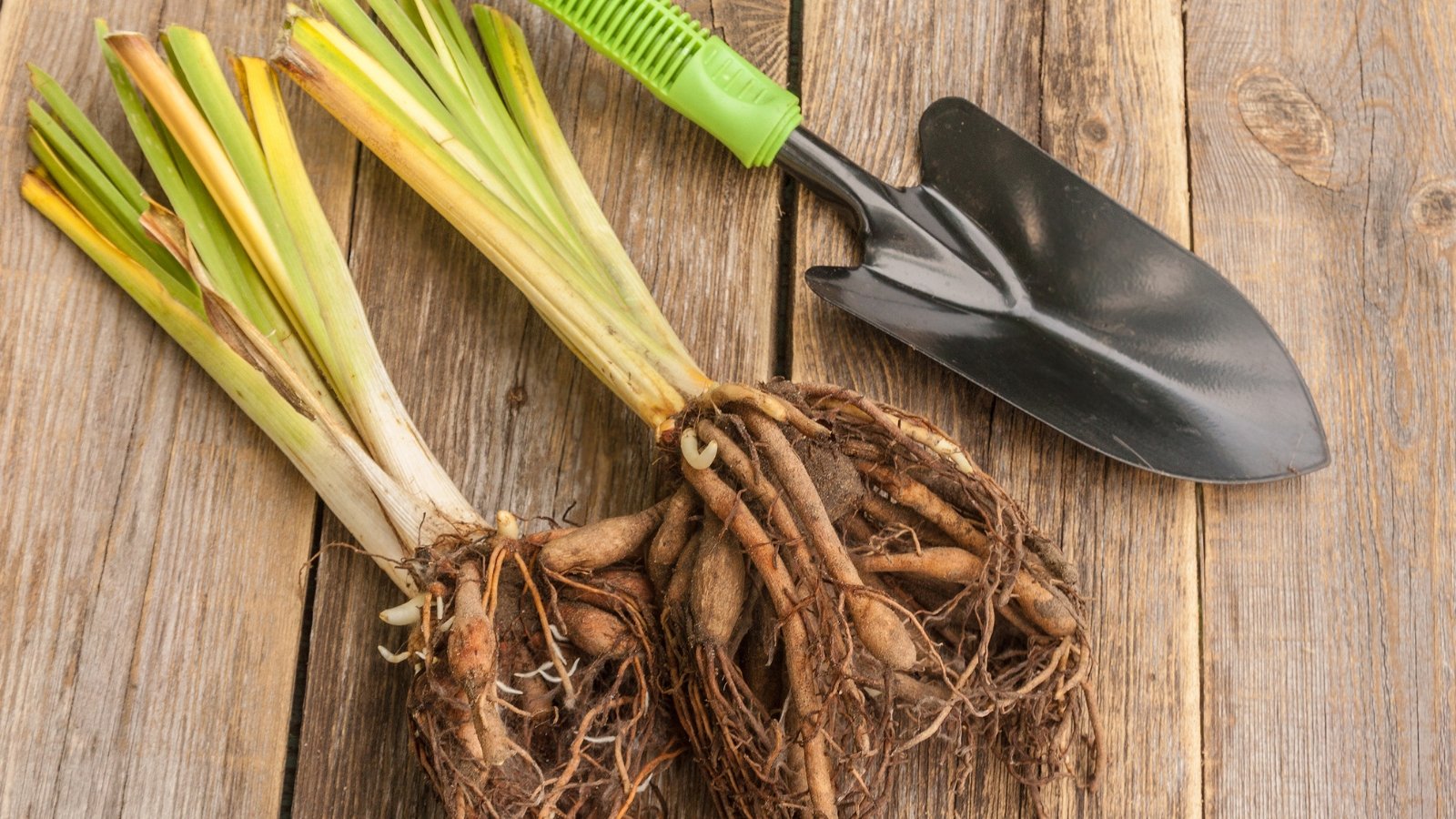

Some vegetation actually reply appropriately to being divided each few years. Dividing might help rejuvenate older vegetation which have stopped blooming or died out on the central crown, and alleviate overcrowding all through the yard mattress. Most perennials need to be divided each 1-5 years, relying on the species.
Fall is a wonderful time to divide up many spring and early summer time season season flowering perennials, like irises, daylilies, phlox, coreopsis, and peonies. Decide a cool day a minimal of 4 weeks earlier to a tough freeze – it can provide your newly divided plant a substantial amount of time to get established.
Deal with Invasive Vegetation
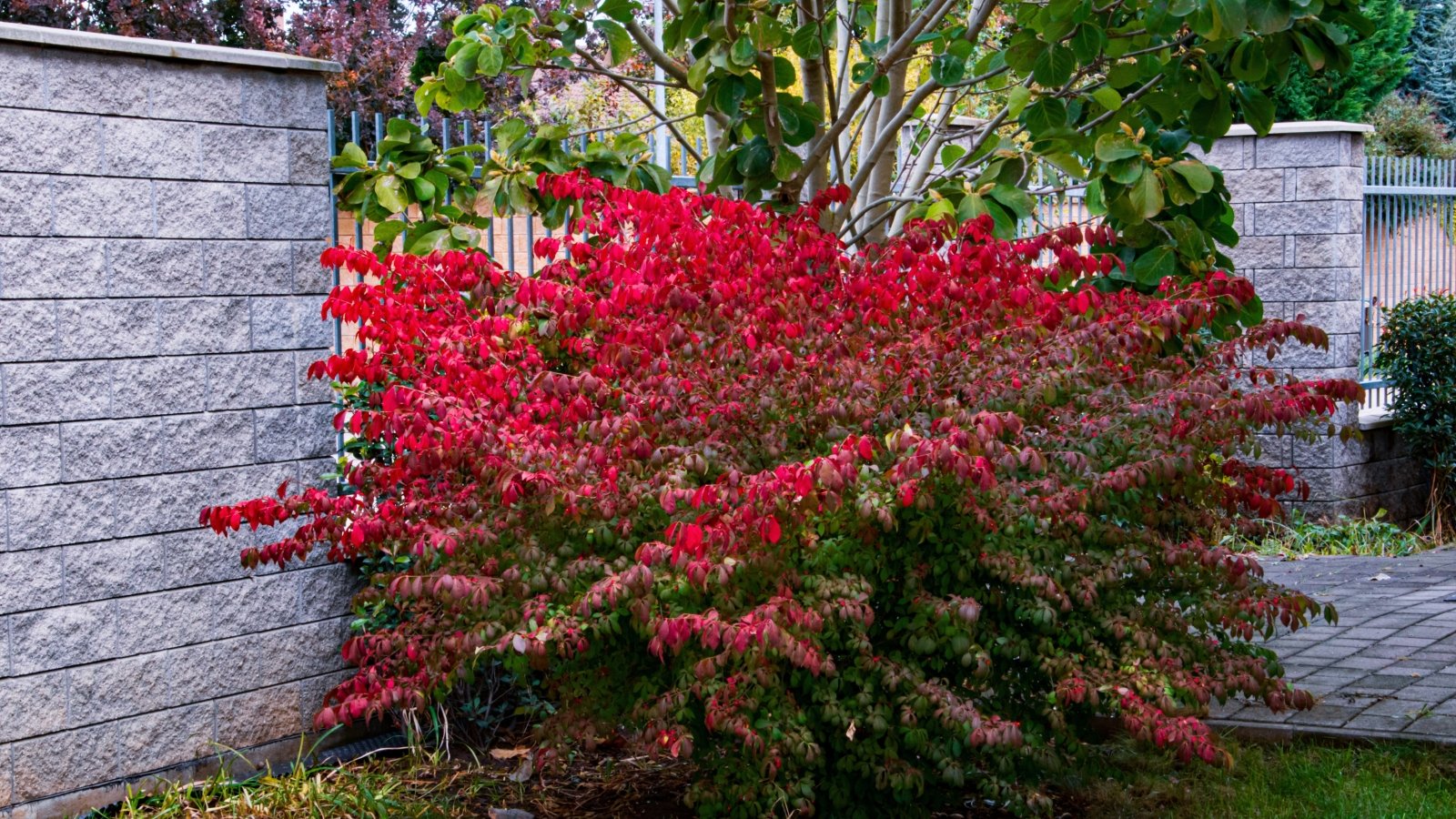

Fall is a wonderful time to wrestle invasive vegetation. Many widespread woody invasive shrubs, together with buckthorn, barberry, and burning bush, retain leaves and berries correctly into the beginning of winter. Whereas the remainder of your yard can be naked, you’ll be capable of merely arrange and isolate the invasive vegetation.
Retailer Shrubs, Perennials, and Bushes
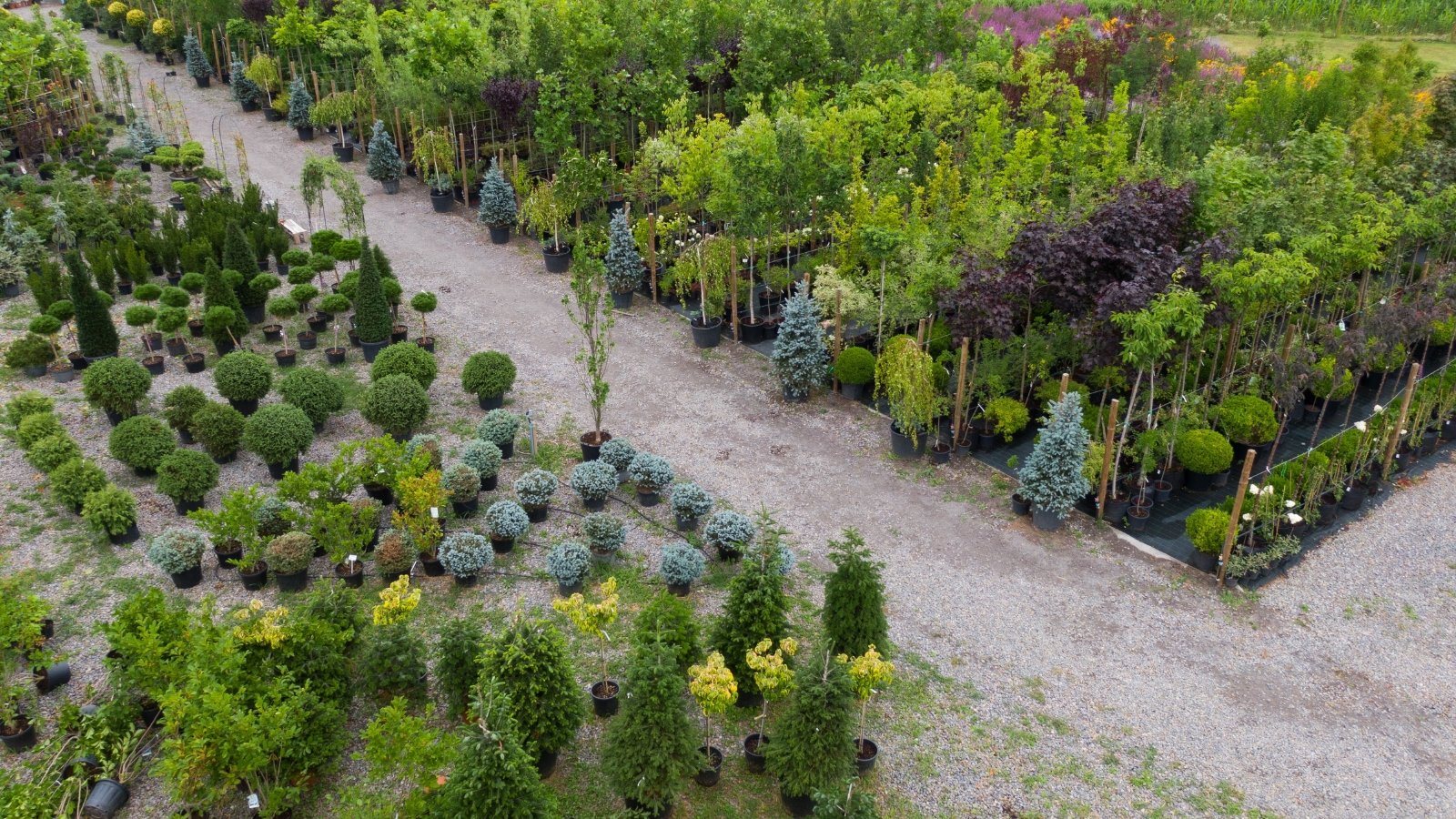

Many yard companies and nurseries are seasonal and shut up retailer prior to the autumn ends. In an effort to maneuver some inexperienced devices stock, some could put their vegetation at a hefty low worth. Their earnings margin loss is a gardener’s buy! I’ve scooped up a substantial amount of completely healthful vegetation all through the autumn that proceed to grace my yard to presently (to presently, my favourite end-of-season steal is a $40 clematis that I bought for EIGHT DOLLARS).
To not stage out the fact that fall is a wonderful time to get youthful bushes, shrubs, and perennials all through the flooring. The cool native climate means you acquired’t ought to stress about watering as fairly a bit. Most vegetation are heading into dormancy, which implies they’ll be sending vitality in route of root enchancment. With out buds and leaves to fret about, they’ll get established sooner.
Drain Hoses and Irrigation
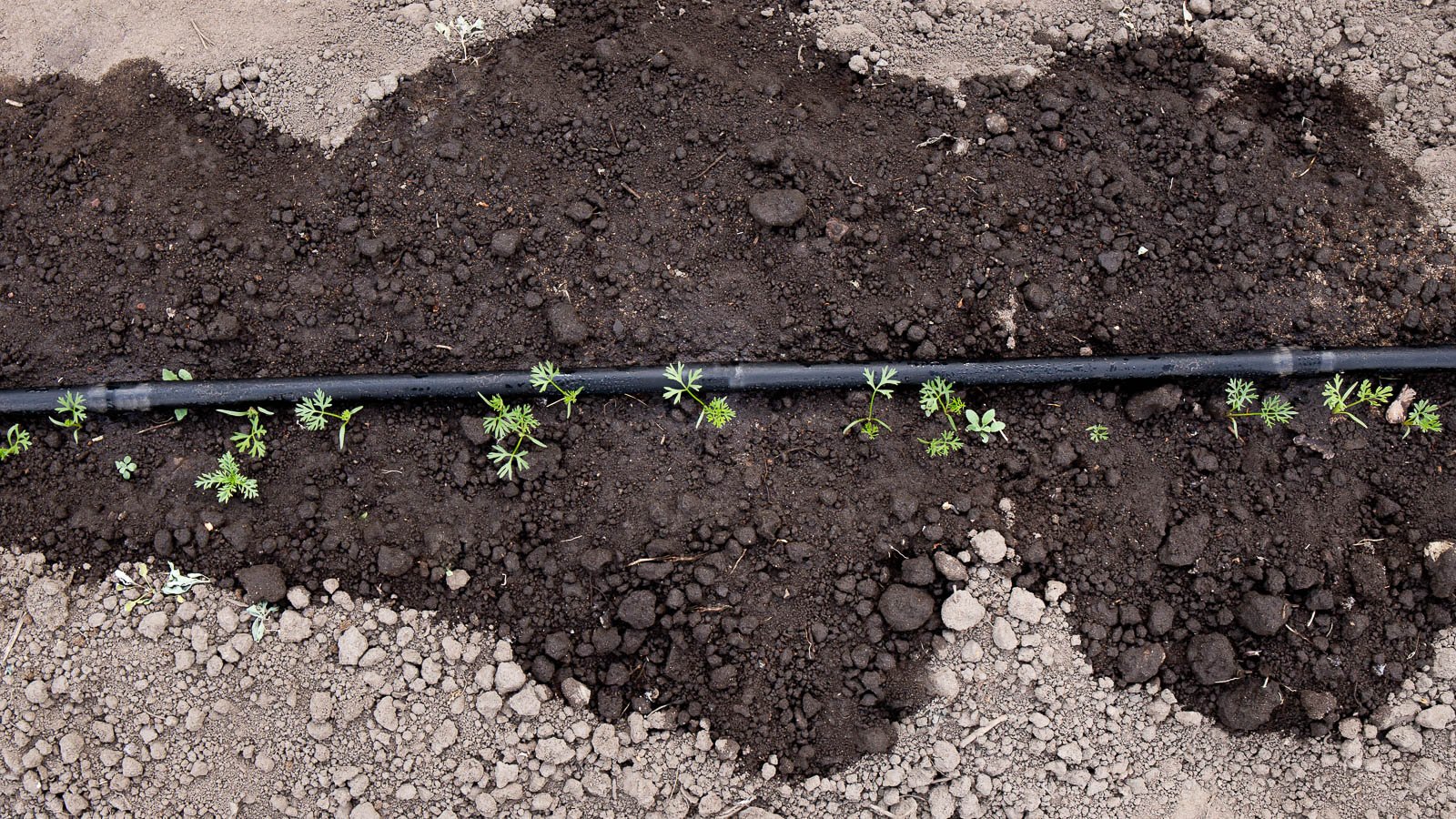

I do know, I do know. Emptying out and wrangling yard hose isn’t precisely a glamorous train. Nonetheless chilly native local weather gardeners know {{{that a}}} hose stuffed with water will lastly freeze, develop, and burst. Largest case situation, you might need a cracked, leaky hose. Worst case situation, you might need water everywhere. Take away the hose from the spigot, then stretch it flat all by the underside to empty. Alternatively, you presumably can dangle the hose by its coronary heart over a fence or completely totally different excessive location so the water will drain out at every finish.
Equally, do you have to happen to use a terracotta olla to irrigate your yard, and reside in an home that experiences widespread freezes or extended winters, you’ll need to dig up, empty, and retailer the olla indoors. This may increasingly more and more forestall the terracotta from cracking.
Clear Your Containers
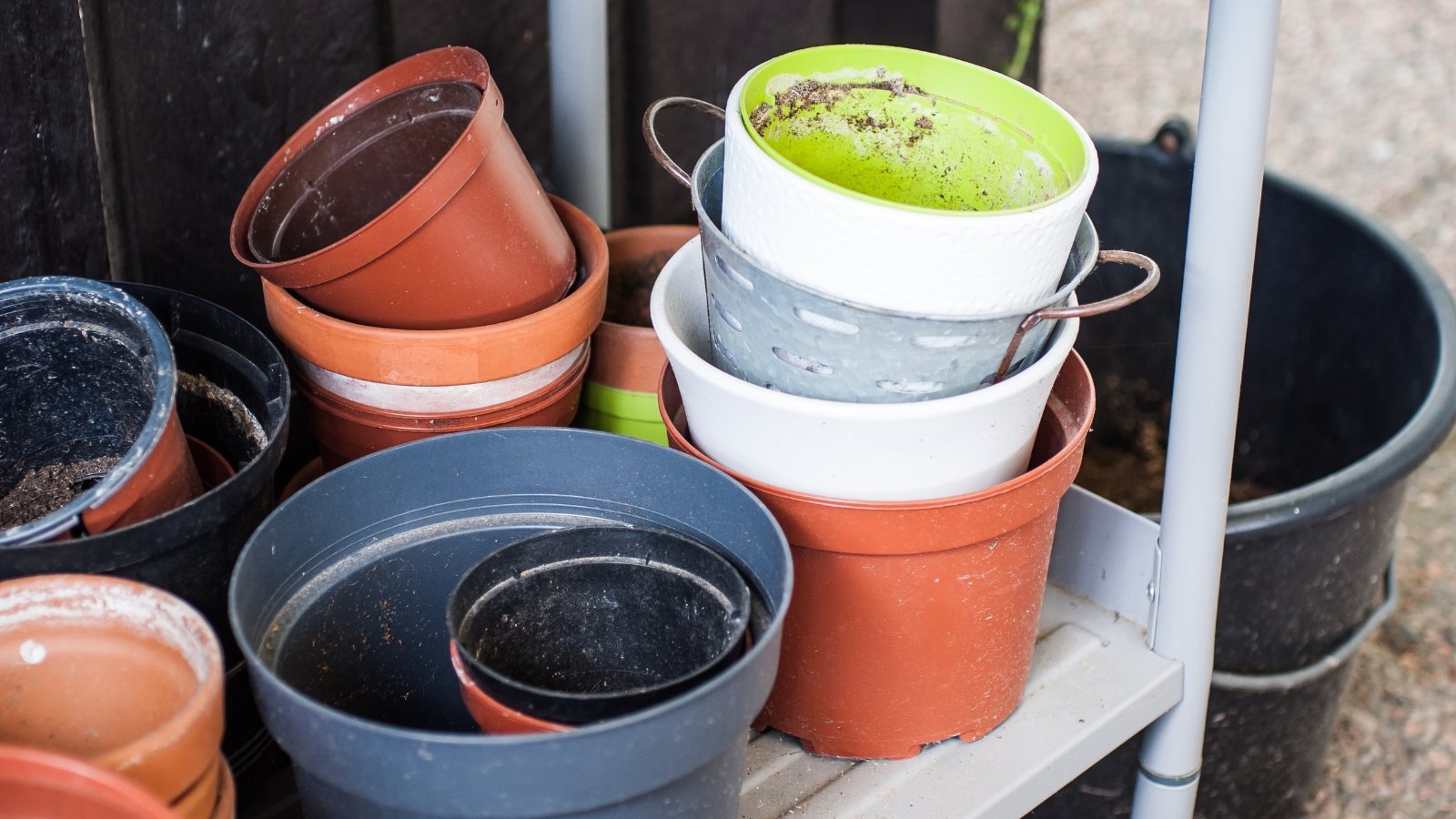

I’m 100% accountable of not doing this one. As shortly as a tough frost nukes the tender annuals in my pots, planters, and hanging baskets, I normally dump the soil after which merely stack the containers in my shed. Occasionally do I get the urge to interrupt out a hose and scrub brush.
Nonetheless I ought to. Insect pests can merely overwinter all through the underside of a planter and reappear all through the spring. Micro organism from contaminated nursery vegetation will linger all through the soiled, soil-encrusted planters and make their approach into subsequent season’s vegetation.
Blast containers with a hose, then take a couple of minutes with every container to clean unfastened any caked on mud or soil with delicate dish cleaning cleansing cleaning soap. Alter to up with a ten% bleach resolution or 70% rubbing alcohol to utterly disinfect the container. Dry containers all through the picture voltaic, then retailer them and instantly begin dreaming of subsequent season’s planting concepts.
Key Takeaways
Wrapping up just a few gardening duties now ensures a healthful, vibrant yard subsequent season. When spring lastly does arrive, we’ll be capable of focus utterly on seeds and planting. Now, roll up your sleeves and get out all through the yard!
[ad_2]
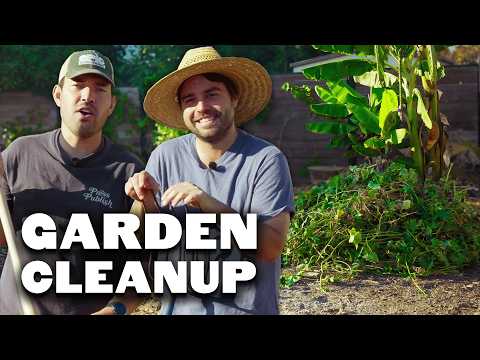
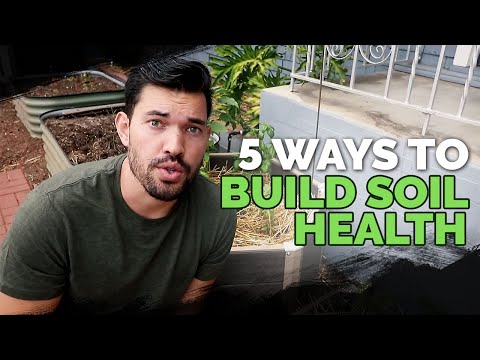
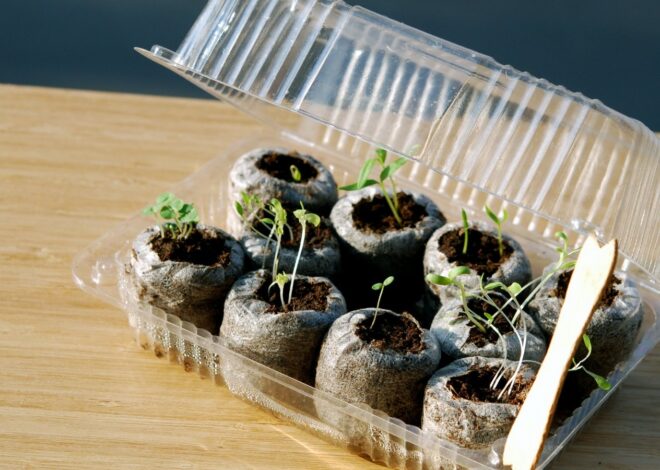
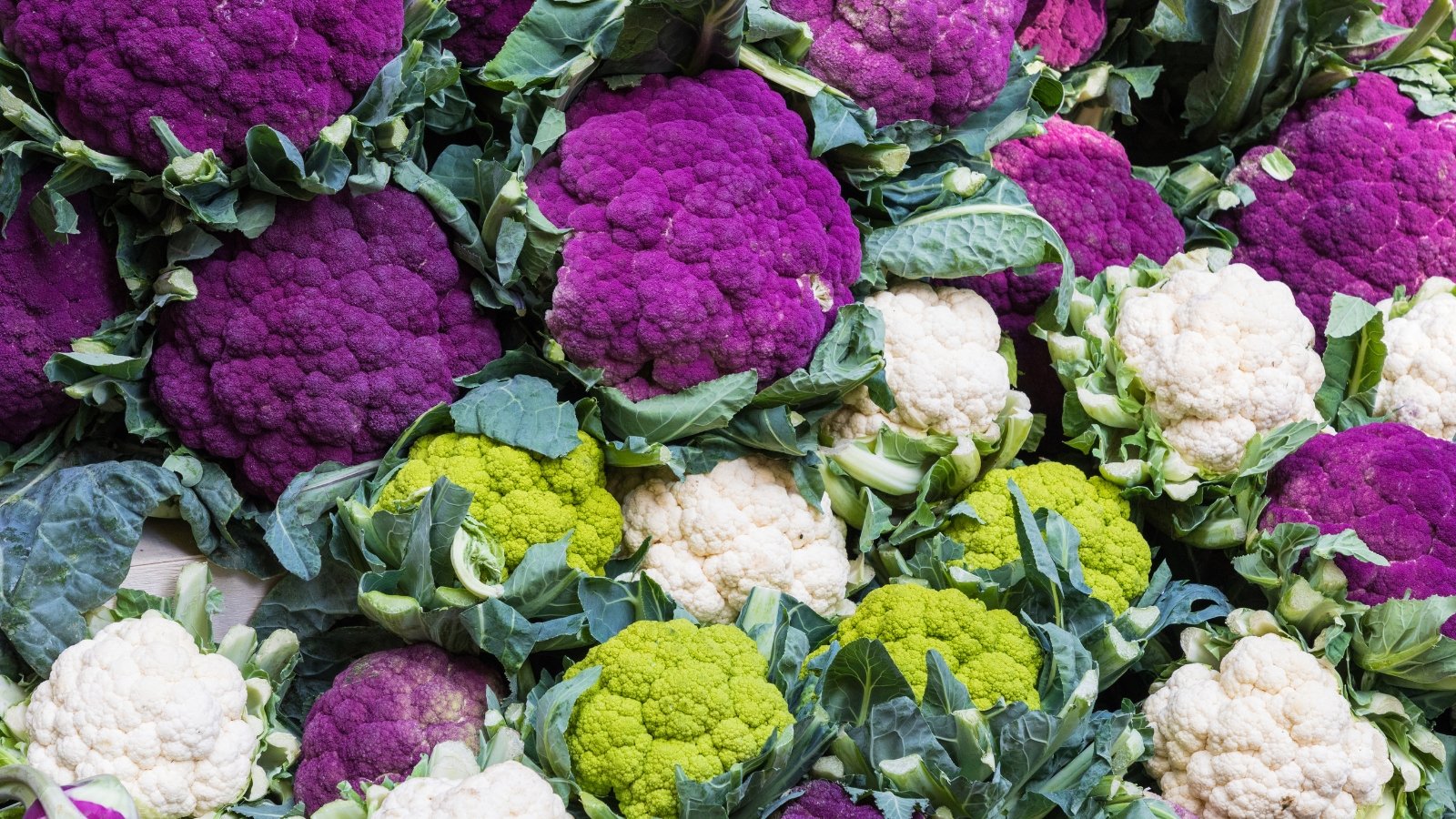
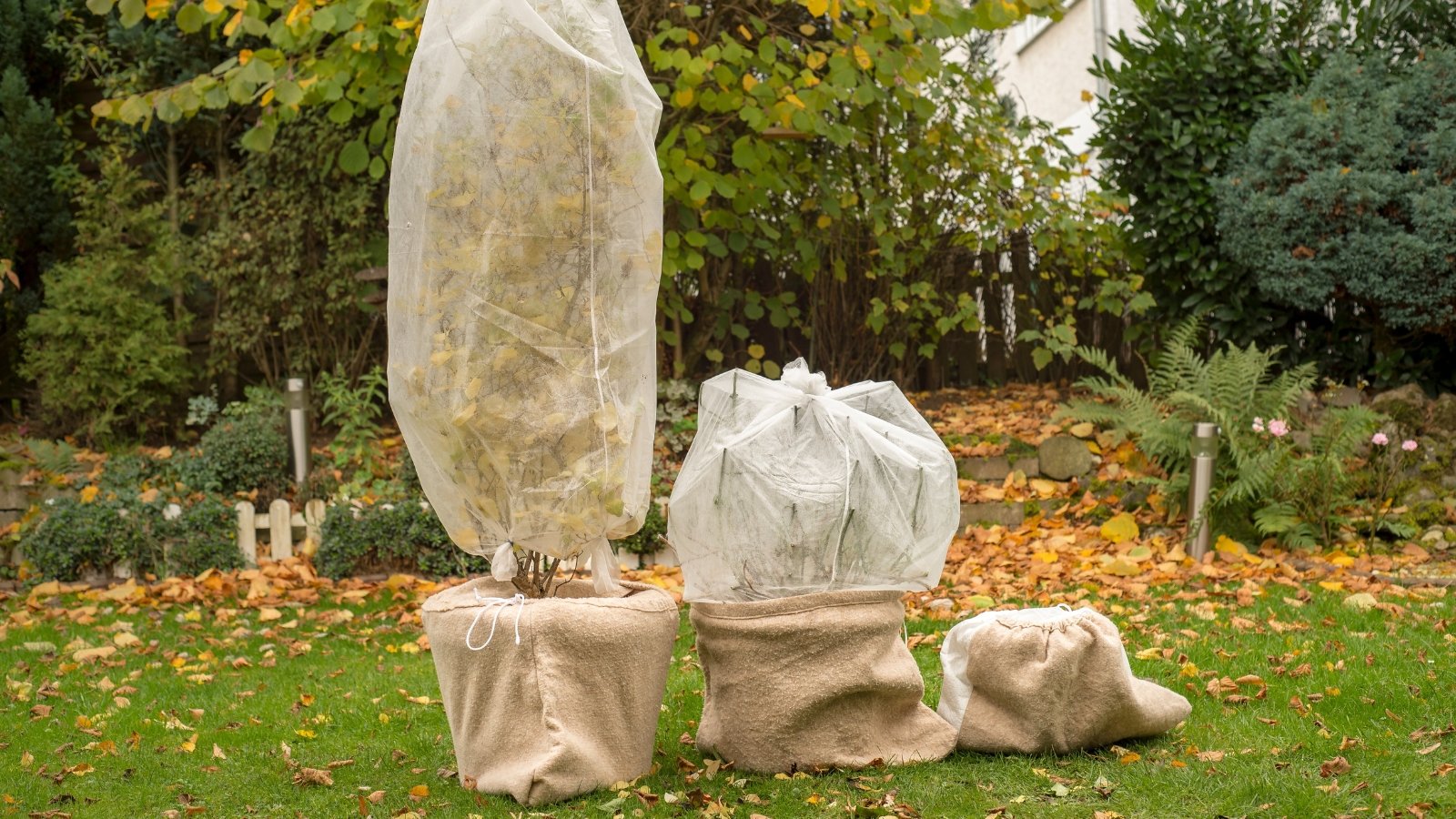
It’s helpful to see a list of fall gardening tasks compiled in one place. The reminder about cleaning containers is something that often gets forgotten but can make a significant difference come springtime.
I found the tips on dealing with invasive plants particularly useful. It’s something many gardeners overlook, but it’s crucial for maintaining a healthy ecosystem in our gardens. The advice on timing is also well noted.
Overall, this article covers important aspects of fall gardening that can easily be overlooked. I especially liked the emphasis on preparing plants for winter and ensuring they are healthy for the next growing season.
The suggestion to plant cover crops was interesting. I hadn’t considered this practice in my home garden before. It seems like a practical way to protect soil health during the off-season while contributing to future growth.
This article provides a thorough overview of essential fall gardening tasks. I appreciate the emphasis on soil health and the importance of composting. It’s a great reminder for both novice and experienced gardeners to prepare for winter.